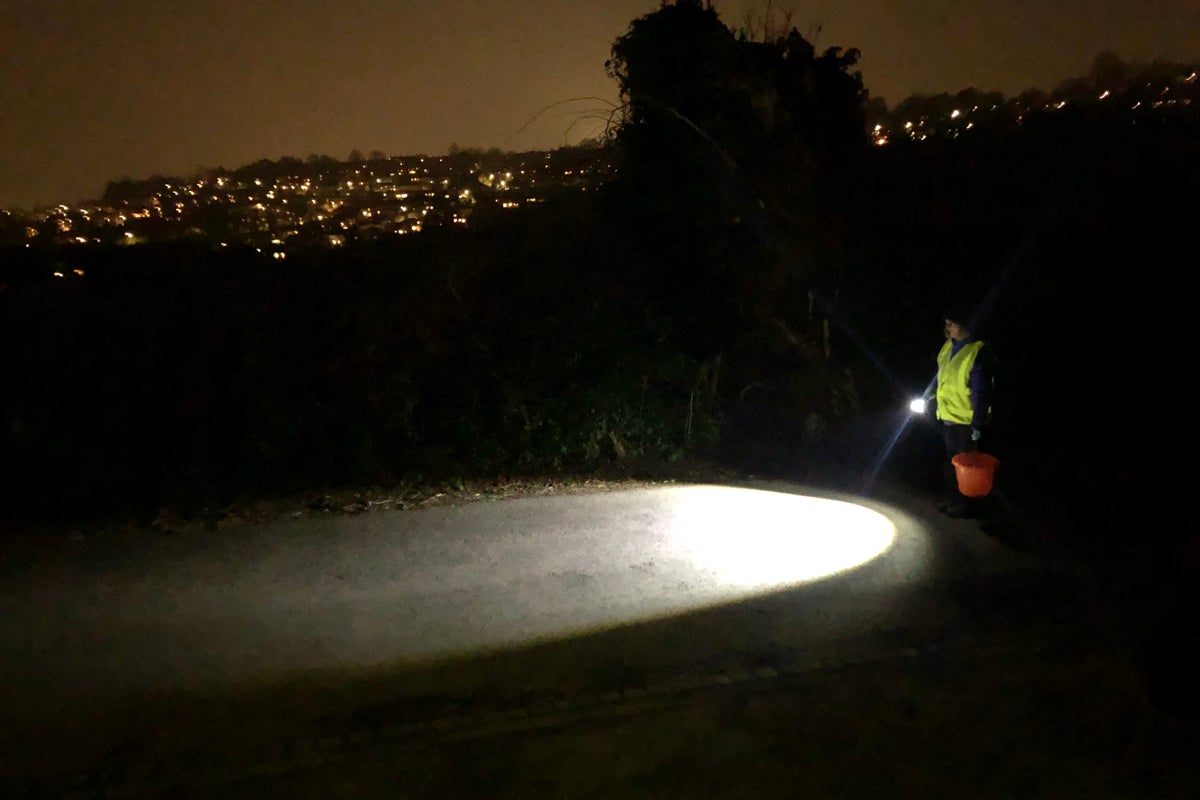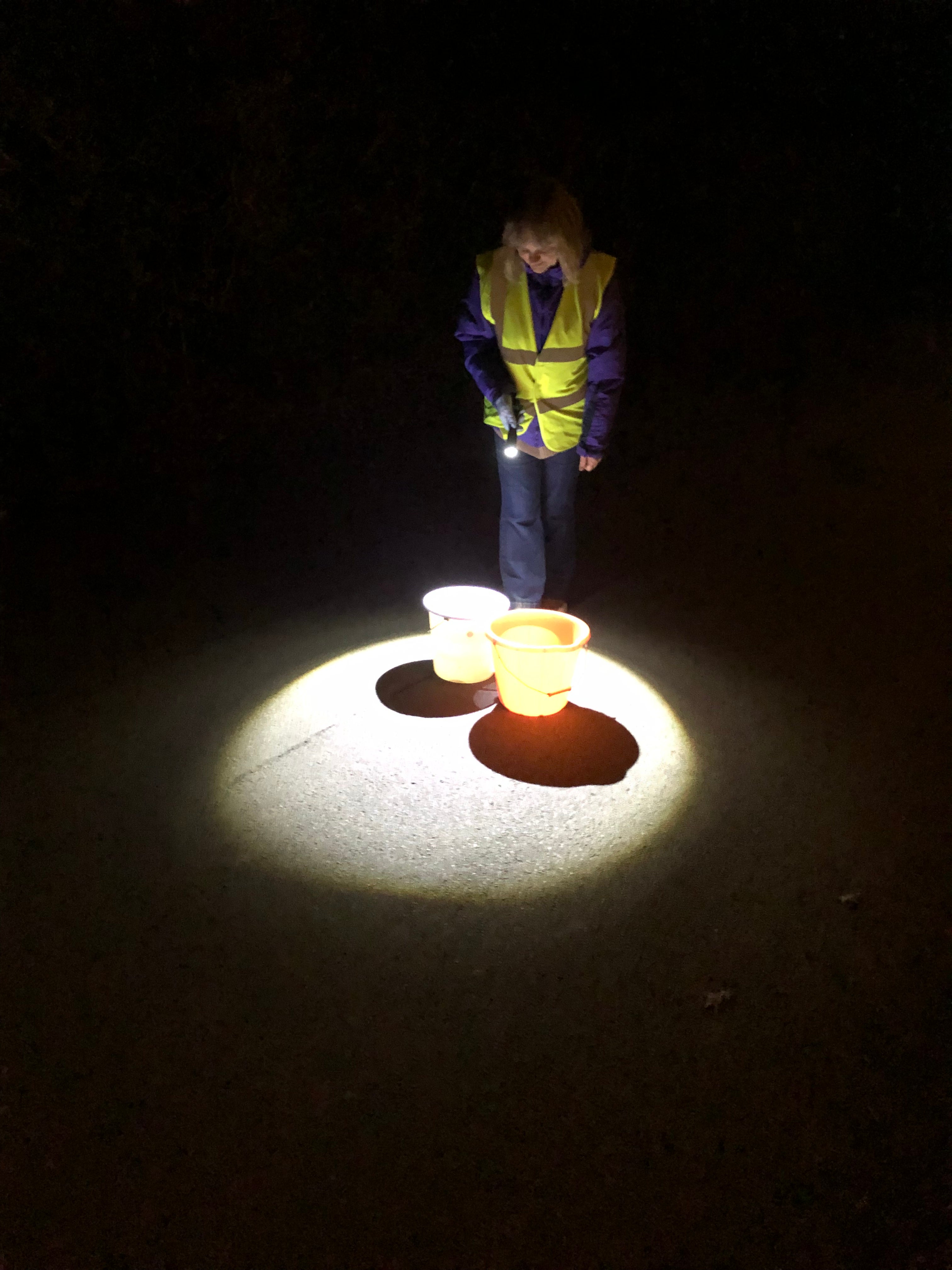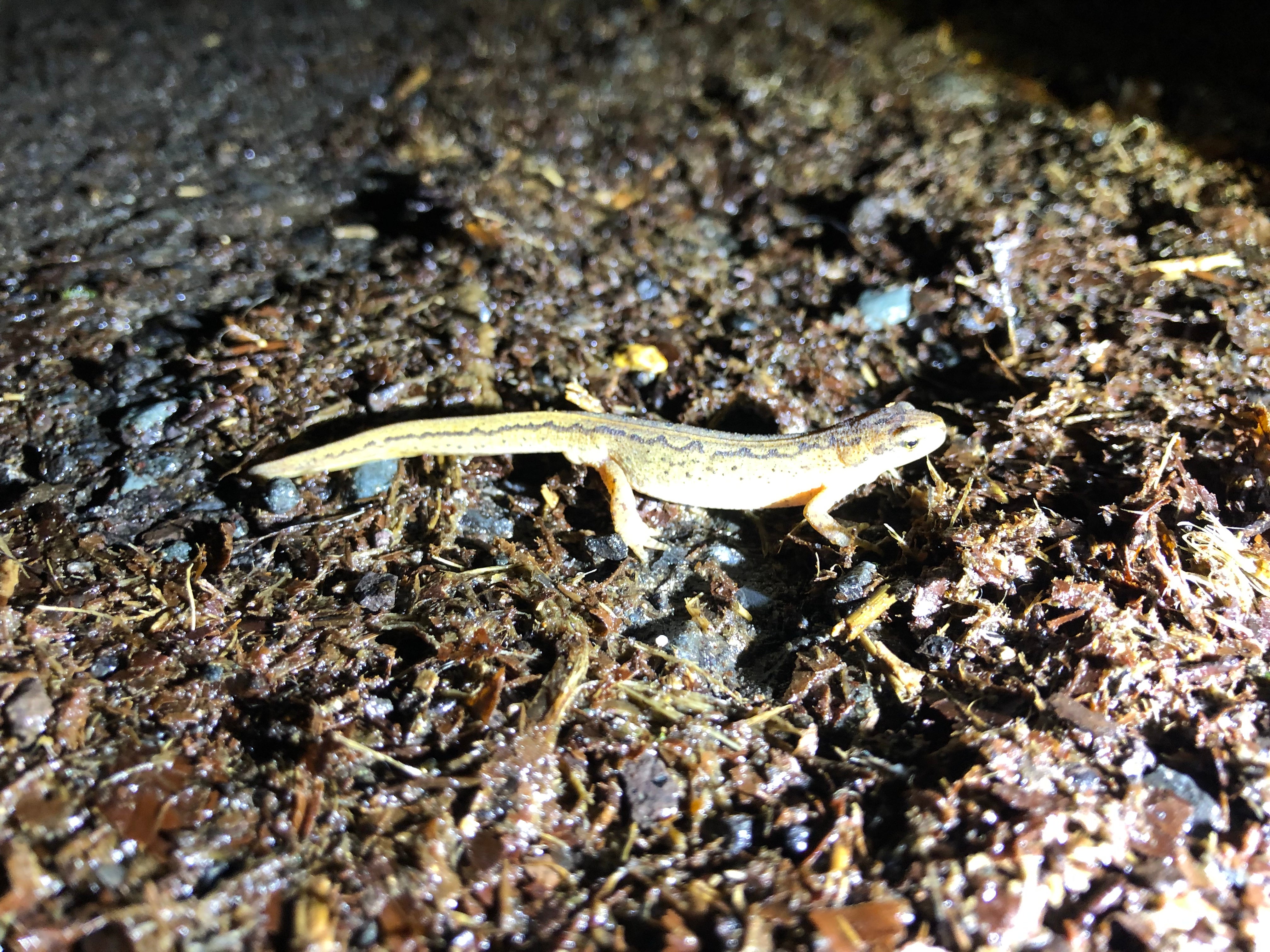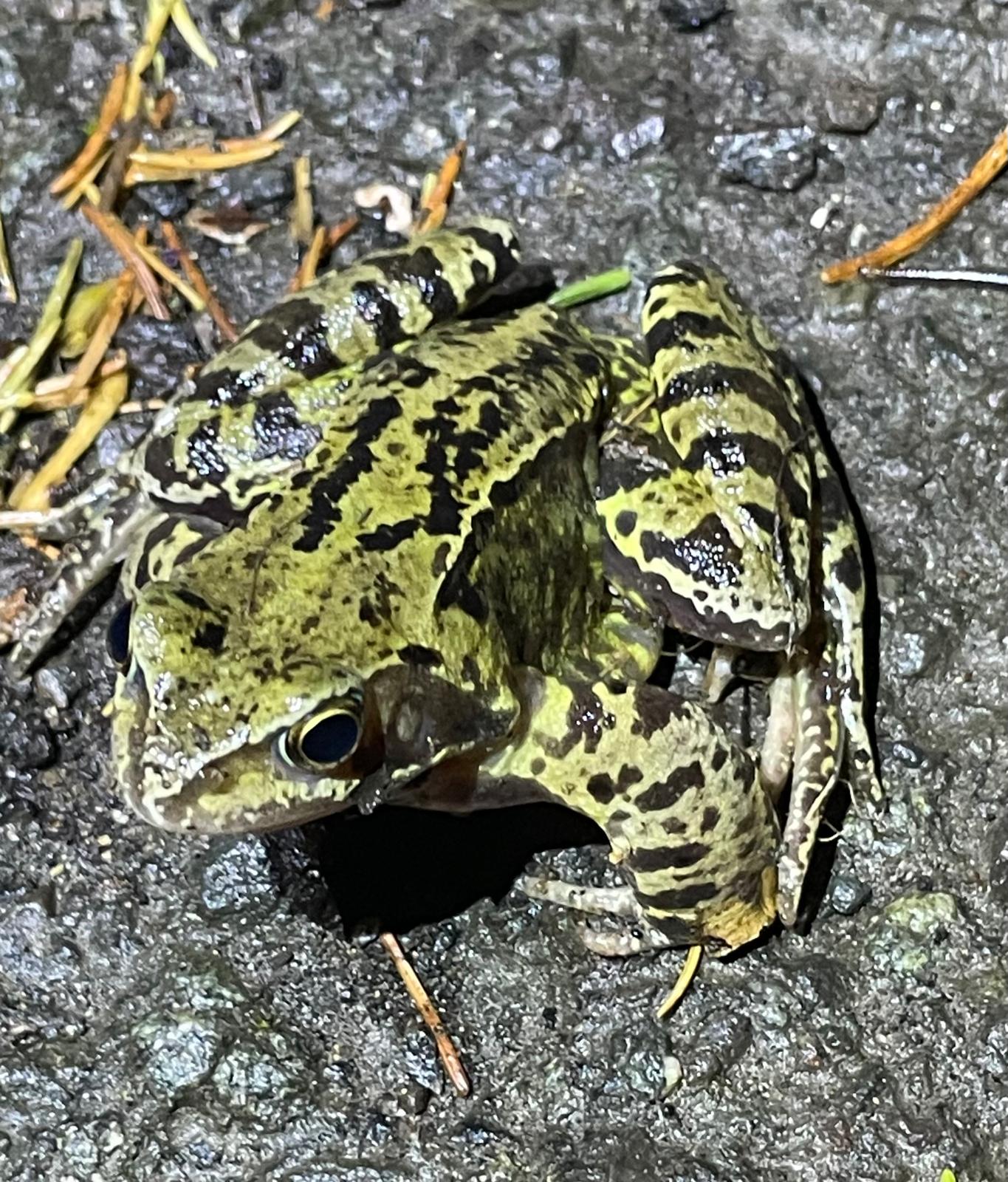
It has been a year of milestones for a group of toad patrollers as they have now helped 50,000 amphibians reach their breeding grounds in the last three decades.
The Charlcombe Toad Rescue Group helped nearly 4,000 toads, frogs and newts across a half-mile stretch of Charlcombe Lane, near Bath, during this year’s migration season.
The 2025 patrol saw the second highest number of amphibians recorded since the road closure started in 2003.

For the first time in the patrol’s history, a great crested newt was seen.
Around 50 volunteers go out on patrol each night at dusk to help common toads, common frogs and newts on their journey.
Collectively, they will spend more than 600 hours in hi-vis jackets, armed with torches and buckets, walking slowly up and down the road.
Toads, frogs and newts are carefully picked up with latex-free, powder-free gloves, to avoid any chemicals from volunteer hands affecting them, and taken safely in buckets to drop-off points.
The annual closure has taken place each spring since 2003 with the agreement of Bath and North East Somerset Council.
It is only one of four road closures in the UK and it has played a vital role in keeping the local population of amphibians stable during the last 20 years.
Before the closure of Charlcombe Lane, the casualty rate was 62%, while in 2025 it was 3%.

Chris Melbourne, who manages the collection of data for the Charlcombe Toad Rescue, said: “Reaching the milestone of 50,000 amphibians helped in more than 20 years of the patrol has only been possible due to the closure of Charlcombe Lane, and with the support of the local residents.
“This has been a game changer for our local amphibian population, with the casualty rate dropping from 62% before the patrol started to 3% this year, bucking national trends and giving the frogs, toads and newts a fighting chance of flourishing.
“Throughout the 2025 season, there were long stretches of cold and dry weather.
“This was followed by wet and warm conditions that were ideal for amphibians to be on the move.
“On the night of February 23, volunteers helped 1,119 toads, frogs and newts cross the road.
“With a changing climate, it is becoming increasingly difficult to predict the peak times for amphibian movements, that is why closing the road for six weeks makes such a difference.
“This year the peak movement was February 19 to 23, last year it was slightly earlier in mid-February and in 2023 it was mid-late March.”

Back in 2016, charity Froglife used data collected by toad patrols to explore what had been happening to the population of common toads across the UK.
The research demonstrated that the common toad populations had declined on average across the UK by 68% in just 30 years.







